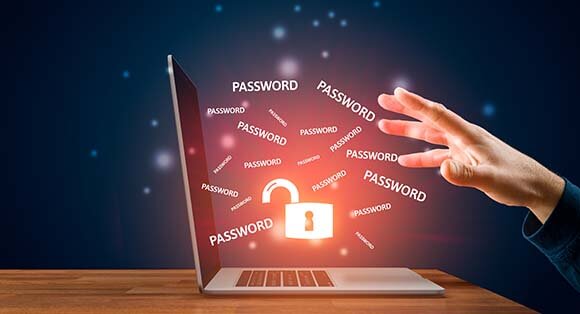Fight against cybercrime as employees work from home during Covid-19
17/06/2020 00:00:00by Doug Kelley17/06/2020 00:00:00Fight against cybercrime as employees work from home during Covid-19Bluedrop Services
 Return to blog menu
Return to blog menu
The recent lockdown has seen many office closures, and the 2m social distance restrictions have meant a lot of the UK is working from home.
Unfortunately, with the increase of home workers, there has also been a rise in cybercrime. Scammers are targeting those looking for coronavirus information and weak and unsecure home network systems that are vulnerable to such attacks.
In this article, we are going to look at the fight against cybercrime as employees work from home during the coronavirus.The risk of cybercrime during coronavirus
The coronavirus has seen scammers take advantage of a range of workers, including NHS staff with false car insurance deals. Many scammers are exploiting the coronavirus to target companies and individuals.
Some scammers are luring people in with malicious links that download remote administration tools on their devices. Such administration tools allow scammers to access your devices without your knowledge. These links can be found anywhere, especially from untrusted websites and emails.
The global pandemic has seen over 100,000 COVID-19 new web domains created. Although not all of them will be malicious, many of them will be. As a result, your employees will need to stay cautious of any suspicious looking links and domains.
With more staff working from home, they won’t have the same level of security on their home networks as seen at their corporate workplaces. Therefore, there has been a rise in hackers accessing vulnerable home networks.
Business leaders and employees have a responsibility in keeping their organisation data secure to prevent cyberattacks. You must ensure you have preventive measures in place to keep businesses protected and personal and confidential information safe from cyber-attacks.
Cybercrime can be business critical, any exposures in your security can leave you accountable for any stolen data, resulting in expensive fines. You will need to check what security measures are currently in place and look at what you and your employees can do to protect the business.
How to keep secure from cybercrime during coronavirus
There are many systems and policies you can put in place to prevent cyberattacks. Here are some that will help protect your business during coronavirus. If your employees are using their personal devices to access work-related data, they must take extra care to protect the business and personal information.
Passwords and passphrases
Never under-estimate the power of a strong and unique password. You and your employees should have a unique password for each account they have. Using strong passwords will reduce the chances of any business accounts being hacked, including your home WIFI access point.
Be vigilant of cybercrime
Make sure your employees avoid clicking on any suspicious links from untrusted websites that they haven’t visited before. Don’t accept any message or click on any links from untrusted and spammy messages or emails from suspicious accounts, especially on social media. Organisations would never use social media to request personal information.
Use a VPN
A VPN sits on a PC, Laptop or mobile device and creates an encrypted network connection. VPN’s make it safe for any workers to access their IT resources within the organisation and elsewhere on the internet.
Check emails
You should check all emails carefully. There are many phishing emails that escape the spam folder and fall into your email inbox. Most of these emails will replicate a brands identity and message.
They can sometimes provide a link which is dangerous to your device. To check the email is legitimate, check that the from email address is as standard and not something that looks like this: noreply@fsfojsd.com or a standard Hotmail or Gmail account imitating and brand.
Update your software and operating systems
Ensure the operating systems on your devices are up to date. Operating systems such as Microsoft Windows and Apple iOS regularly update their operating systems. This includes keeping anti-virus software up to date to prevent any harmful malware infecting your device.
You can create a step-by-step guide for employees to follow while they work from home. Any cyberattack that means loss of access, loss of data or breach in security can lead to some expensive insurance claims. Make sure your cyber security insurance is up to date and check that your business is protected from any costly issues.
Call our friendly team now for the right insurance cover - at the best price
+441489780491
Calls recorded for training and quality.



 Privacy and Cookie Policy
Privacy and Cookie Policy